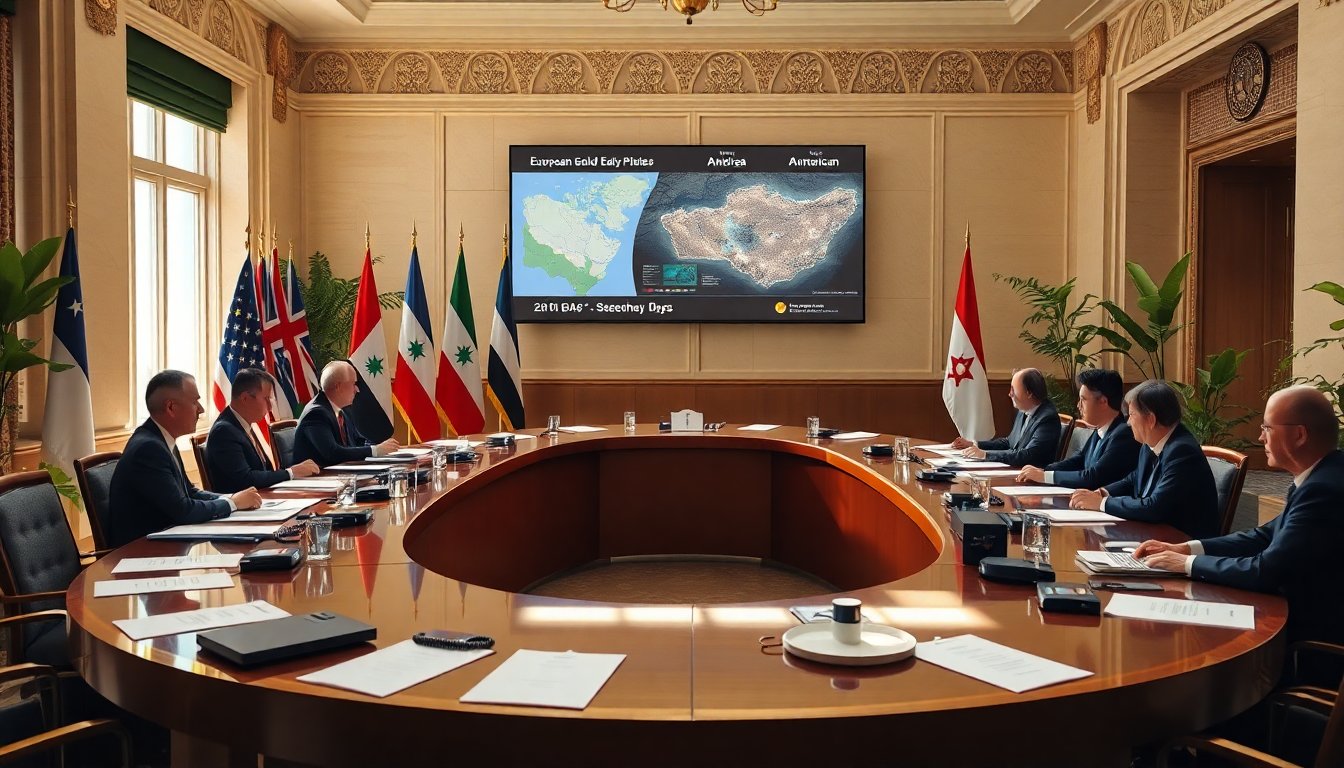Table of Contents
In a significant diplomatic effort aimed at resolving the ongoing conflict in Gaza, several European leaders, alongside key figures from the United States and Egypt, are convening in Sharm El-Sheikh, Egypt. The summit, co-chaired by U.S. President Donald Trump and Egyptian President Abdel Fattah el-Sisi, is set to be a landmark event, focusing on the newly established ceasefire agreement that took effect shortly before the gathering.
The presence of notable leaders, including France’s Emmanuel Macron, the U.K.’s Keir Starmer, Italy’s Giorgia Meloni, and Spain’s Pedro Sánchez, underscores the urgency and international support for peace initiatives in the region. Turkey’s President Recep Tayyip Erdoğan will also attend, reflecting a broader regional commitment to stability.
Goals of the summit
The primary objective of this gathering is to achieve a lasting resolution to hostilities in Gaza and to promote a framework for peace and stability throughout the Middle East. According to the Egyptian presidency, the summit seeks to enhance efforts to establish a new era of regional security, which is seen as vital for the future of all nations involved.
A historic signing ceremony
One of the most anticipated moments of the summit will be the signing ceremony for the Middle East peace plan. This agreement, brokered between Israel and Hamas, is designed to officially conclude the recent violence that has affected the Gaza Strip. It is noteworthy that neither Israel nor Hamas will be present at the summit, raising questions about the agreement’s long-term viability.
To facilitate the peace process, the ceasefire deal reached on Thursday includes a significant exchange of hostages. Reports indicate that Hamas plans to release a number of Israeli captives on Monday morning, coinciding with a prisoner release by Israel. This mutual act of goodwill aims to reinforce the ceasefire and foster trust between the involved parties.
Humanitarian efforts and regional implications
The humanitarian situation in Gaza remains dire, making the summit particularly timely as aid is urgently needed. On Sunday morning, humanitarian trucks successfully entered the Gaza Strip, following the announcement from the U.N.’s humanitarian office that Israel has agreed to allow aid to flow into the region as long as the ceasefire remains intact. This development is essential for alleviating the suffering of countless civilians affected by the ongoing conflict.
European Union’s role
European Council President António Costa is representing the European Union at this significant event, highlighting the EU’s commitment to facilitating peace in the Middle East. According to Costa’s spokesperson, the plan offers a genuine opportunity to create a just and sustainable peace in the region. The EU is determined to support these diplomatic efforts and contribute to the implementation of the agreement.
The summit symbolizes a collective push toward peace and reflects the broader geopolitical dynamics at play in the region. As leaders engage in discussions, there is hope that this gathering will pave the way for a new chapter in Middle Eastern relations, prioritizing dialogue and cooperation over conflict.
The outcomes of the Sharm El-Sheikh summit will likely have lasting implications for the region’s future. The commitment of various leaders to engage in this peace process signals a collective recognition of the need for stability and security in the Middle East.


